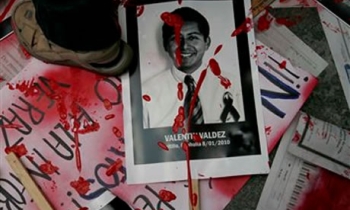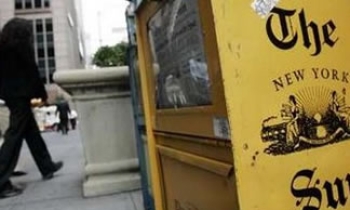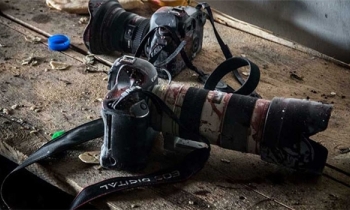BATON ROUGE (AP) – One recent balmy morning, Wilbert Rideau wandered around his backyard, dressed in shorts and sandals.
He acknowledged the joy he felt was greater than others might experience, but for him it was one more milestone on a very long road.
"It doesn't sound like a big thing to you," Rideau said. "But I spent 44 years in a place where they don't allow you to walk around in sandals and shorts."
Rideau, who gained fame while a prisoner in Angola Penitentiary, became a free man on Jan. 15, 2005, escorted out of the Calcasieu Parish Jail in Lake Charles in the middle of the night.
Widely honored because of his work as a prison journalist and editor of a magazine about prison life, Rideau attracted supporters from all over the world for his effort to win release.
He had been locked up since 1961 when he robbed a bank, took three employees hostage, shot all of them and killed one, Julia Ferguson. Prosecutors said Rideau stabbed her and slit her throat as she knelt on a rural road begging for her life. He admitted killing her, but said it was an impulsive lunge with a knife, the unpremeditated act of a confused 19-year-old.
The contention that Ferguson's throat was slashed was refuted by a well-known forensics expert who insisted the cut on her throat was "superficial" in defense testimony at Rideau's last trial.
"I've had to live with this all my life," Rideau said. "It's something I deeply regret."
At his final trial, U.S. District Judge Ginger Berrigan of New Orleans was called as a witnesses and affirmed that Rideau had once written letters of remorse to the victim's families – letters apparently never delivered by the state parole board or the former district attorney in Lake Charles.
Rideau cheated death in the 1970s when the Supreme Court outlawed then-existing death penalty laws. Many feel he was cheated of freedom after state pardon boards recommended clemency four times but two governors turned him down in the face of stiff opposition from the victim's family and Lake Charles authorities.
After appealing his conviction, Rideau had three more trials. Two found him guilty of murder again, but his last trial – ordered by a federal appeals court because of historic exclusion of blacks from grand juries in Calcasieu Parish – resulted in a manslaughter conviction. He had already served more than the maximum sentence for that crime.
Finally, more than four decades after reaching death row at Angola, he was free.
While in prison, Rideau went from an illiterate teenager to a well-read, self-educated man. He edited The Angolite, a prison magazine that won a George Polk Award and a Robert F. Kennedy Journalism Award for exposing prison abuses. He was in demand as a speaker, appeared on television and helped produce and direct an award-winning documentary about Angola called, The Farm.
In 1993, Life magazine called him "the most rehabilitated prisoner in America."
His year of freedom has been one of discovery for Rideau, a dapper man who'll be 64 on Feb. 13. He has a touch of gray in his mustache, but none in his hair and few lines on his face. At an age when his contemporaries are checking out retirement plans, Rideau just got his learner's permit and is trying to learn to drive.
A week after he got out of prison, Rideau went to the Department of Motor Vehicles to get an identification card. He was supposed to fly to Washington to appear on Nightline, but couldn't board a plane because he had no ID – no discharge papers from the prison system, no birth certificate, no Social Security card.
Rideau took the front pages of three newspapers with him, all showing him after he was freed from jail. "You look at me and you'll see that I'm the same person," he told officials.
His unusual form of ID was accepted. He hopes to get his first driver's license this spring.
"It's not easy for a 63-year-old man to learn to drive," said Linda LaBranche, a friend and legal researcher who worked with the Rideau Project at Loyola University in New Orleans. "It's going slowly."
Just about everything is going slowly for Rideau.
He wanted to open a bank account, but because he has no credit record he had to have a co-signer. He has learned to use a debit card, but not an ATM. He can surf the Web, but can't operate a cellphone. He didn't know how to tie a necktie until someone at a speaking engagement showed him how.
Honorariums from speaking engagements earned him $3,000 in the last year, but he had to borrow money to get health insurance.
"The first thing I'd like to do is to be able to earn some money," Rideau said. "That's a priority, earn some money so I can secure my future because I only have a few years of productivity left."
There have been no offers for him to work as a journalist, something Rideau said does not surprise him.
"I recognize that up there in prison, while I was editor, the thing I had going for me and the magazine is that we were a novelty," Rideau said. "I was a dog playing a piano. So you guys were always interested and everybody was interested and wanted to help. I'm no longer in that situation, but I learned a lot of skills up there that are transferable."
His need for money was made greater after State District Judge David Ritchie, who oversaw Rideau's final trial, slapped him with a $127,000 bill to cover the costs of the proceeding that freed him.
The bill included fees paid to expert witnesses, courthouse security, travel expenses for jurors, copying costs for jury questionnaires, and food for the jury and staff, including the judge ($435.68 to Seafood Palace, $124.80 to Pappy's, $396.90 to Steamboat Bill's).
Before the trial, Rideau's attorneys tried to work out a deal for a manslaughter charge rather than endure another court fight. The prosecutor turned them down. Now, Rideau's attorney, George Kendall, said Rideau was being made to pay for the battle he offered to forgo.
"It's unheard of," Kendall said. "It's the absolute right of any American to have a jury trial. You should know that if you exercise that right and go to court you don't have to pay for it."
The judge's order is under appeal, but in the meantime Rideau filed for bankruptcy to protect him from the bill.
Rideau hopes to write a book, but currently has no contract, no publisher and no agent, despite reports that he was about to sign a $500,000 deal.
Still, he does not appear worried, saying his experiences since release have been good.
"The most surprising thing of my entire experience out here is how nice people have been," Rideau said.
That was his message when he ran into a former Angola guard.
"I told him I'm probably the only person in the world that you know that you don't have to ask how I'm doing," Rideau said. "I am the only guy you know who wakes up in heaven every morning."









